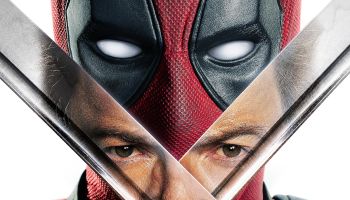“Fast Five,” the latest installment from the “Fast and Furious” franchise, raked in almost $90 million at the box office three weeks ago, signaling to Hollywood that movies with mixed race characters can be profitable. The last film that did that was what, “The Matrix” in the late 1990s?
“Fast Five” starred Vin Diesel, who is bi-racial, black and Puerto Rican musicians Tyrese, Ludacris, Don Omar and Tego Calderon in addition to Paul Walker, who is white and Dewayne Johnson, aka The Rock, who is black and Samoan. Justin Lim, a Korean, was the film’s director.
The ethnic and cultural backgrounds, in addition to the acting prowess, was one of the many things that made “Fast Five” so enjoyable: it had action, men with muscles, fast cars and guns all being utilized at once.
It also had an Asian man, Sung Kang, who got the girl. In Hollywood, that’s practically unheard of because Asian men are not portrayed as sexy or as having desire. (Sung’s character also meets an unfortunate fate at the end of “Tokyo Drift,” another F&F incarnation, but that’s another story).
George Tekei, the legendary TV and screen actor who played Mr. Sulu on “Star Trek,” above, called out Hollywood on its B.S. recently. Why weren’t Asian actors getting their due, like their Black and white counterparts, Tekei wondered. Tekei was referring to the Hollywood practice of white washing Asian film content, specifically tackling the debacle that was M. Night Shyamalan’s “The Last Air Bender,” which took an Asian story about Asian people from an Asian culture and made it completely white.
Another target of Tekai’s was “21,” the fact-based story about six MIT students who were trained to become experts in card counting and subsequently took Vegas casinos for millions in winnings. In real life, the characters who pulled off this feat were Asian. In the movie, Asians were mere props, background characters who basically functioned as wallpaper. The upcoming “Akira,” was also in the sights of Takei, who, like the rest of us, learned that that story’s Asian characters would be played by white men. Seriously.
What is Hollywood afraid of? The largest film producer and consumer country in the world is in India. After India is China. America is further along on the list.
If we are truly living in a multi-racial democracy, why aren’t model minorities, independently, represented on screen? Are Hollywood execs that dim? Really?
Besides Lucy Liu and Bruce Lee, can we really name a stand alone Asian-American Hollywood star that is kicking ass and cashing checks? No. Jackie Chan and Jet Li don’t count because they are Chinese nationals.
Bruce Lee is dead, so don’t even go there.
After the break, on the strength of what “Fast Five” accomplished, take a look at some of our favorite multi-ethnic movie team ups featuring Blacks and Asians. Maybe Asians will be in style next year.
[pagebreak]
Takeshi Kitano and Omar Epps
“Brother” stars Takeshi Kitano, Japan’s busiest TV and movie personality and Omar Epps. Kitano plays a killer in the yakuza who is exiled to L.A., where he meets Epps.
[pagebreak]
Jet Li and Aaliyah
In “Romeo Must Die,” action star Jet Li plays an avenging cop who seeks out his brother’s killer and falls for the daughter of a businessman, Aaliyah, who is involved in a money-deal with his father. Best. Soundtrack. Ever.
[pagebreak]
Chi Muoi Lo and Sanaa Lathan
In “Catfish in Black Bean Sauce,” a Vietnamese adoptee raised by Black parents is happily engaged to a Black woman (Sanaa Lathan). But his family and romantic life is thrown into turmoil when his Vietnamese biological mother comes to the U.S.
[pagebreak]
Akira
A Japanese national with a love for hip-hop, tries to make it as a small business owner in the U.S. But when his parents back home hear of his relationship with Black woman Daphne, they express strong disapproval. Daphne’s friends also trivialize and mock her relationship with an Asian man.
pagebreak]
“Yamakasi”
A French film about a team of minority French youth ― sub-Saharan African, North African and Asian ― who use their parkour skills to steal from the rich to give to the poor.
[pagebreak]
“Aoki”
By Ben Wang and Mike Cheng, this documentary chronicles the life of Richard Aoki, a third-generation Japanese-American who became one of the founding members of the Black Panther Party in 1966.
















